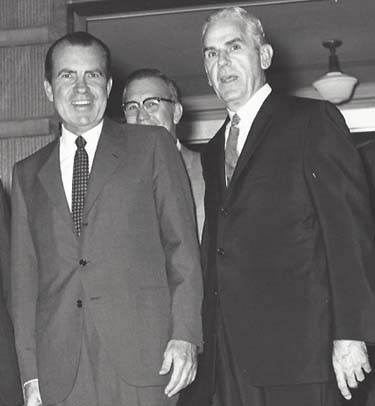When, on October 21, 1973, President Richard M. Nixon ordered the firing of Watergate special prosecutor Archibald Cox and triggered the resignations of the Attorney General and Deputy Attorney General in protest, the upheaval became known as the “Saturday Night Massacre.” Charles Lowther, then a history student at WKU, wrote to several members of the U.S. Congress expressing his outrage at Nixon’s action. The replies he received reflected a common fear that the country was in the midst of a deep political crisis.
“Removal of Mr. Cox was a serious mistake,” replied Kentucky Congressman William Natcher (D), aware that House Speaker Carl Albert had directed the House Judiciary Committee to assess whether there were grounds to impeach Nixon. Kentucky Senator Walter “Dee” Huddleston (D), shared Lowther’s concern but, like Congressman Frank Stubblefield, assured him that Congress would maintain its investigations “to insure that we continue to have a government by law, and not by men.” Kentucky Senator Marlow Cook (R) advised that he had co-sponsored a bill to allow the removal of a special prosecutor only on authorization of Congress, but pledged to retain his objectivity in the event he was called upon to “sit as a juror in an impeachment trial.” Edmund Muskie (D) of Maine acknowledged Lowther’s letter as one of thousands he had received “urging Congress to act to reestablish the principle that no office in our government—and no office holder—is above the law.”
And finally, North Carolina Senator Sam Ervin (D), chairman of the Senate committee investigating the activities of Nixon’s reelection campaign, sought to refute any accusation of political bias by pointing out that his committee had been constituted by unanimous vote of the Senate. Evidence uncovered so far, he suggested in language betraying both anger and sadness, “tends to show that men, upon whom fortune had smiled benevolently and who possessed great political power and great governmental power, undertook to nullify the laws of man and the laws of God for the purpose of gaining what history will call a very temporary political advantage.”
These letters to Charles Lowther are part of the Manuscripts & Folklife Archives collections of WKU’s Department of Library Special Collections. Click here to access a finding aid. For more political collections, search TopSCHOLAR and KenCat.

